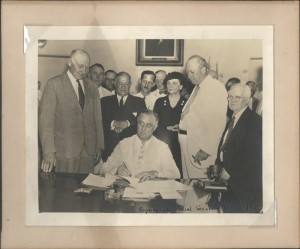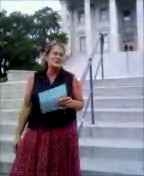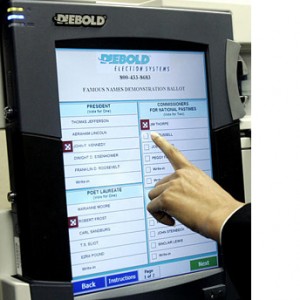#1: Social Security is going broke.
Reality: There is no Social Security crisis. By 2023, Social Security will have a $4.6 trillion surplus (yes, trillion with a ‘T’). It can pay out all scheduled benefits for the next quarter-century with no changes whatsoever. After 2037, it’ll still be able to pay out 75% of scheduled benefits—and again, that’s without any changes. The program started preparing for the Baby Boomers’ retirement decades ago. Anyone who insists Social Security is broke probably wants to break it themselves.
#2: We have to raise the retirement age because people are living longer.
Reality: This is a red-herring to trick you into agreeing to benefit cuts. Retirees are living about the same amount of time as they were in the 1930s. The reason average life expectancy is higher is mostly because many fewer people die as children than they did 70 years ago. What’s more, what gains there have been are distributed very unevenly—since 1972, life expectancy increased by 6.5 years for workers in the top half of the income brackets, but by less than 2 years for those in the bottom half. But those intent on cutting Social Security love this argument because raising the retirement age is the same as an across-the-board benefit cut.
FDR signs Social Security Act
#3: Benefit cuts are the only way to fix Social Security.
Reality: Social Security doesn’t need to be fixed. But if we want to strengthen it, here’s a better way: Make the rich pay their fair share. If the very rich paid taxes on all of their income, Social Security would be sustainable for decades to come. Right now, high earners only pay Social Security taxes on the first $106,000 of their income. But conservatives insist benefit cuts are the only way because they want to protect the super-rich from paying their fair share.
#4: The Social Security Trust Fund has been raided and is full of IOUs
Reality: Not even close to true. The Social Security Trust Fund isn’t full of IOUs, it’s full of U.S. Treasury Bonds. And those bonds are backed by the full faith and credit of the United States. The reason Social Security holds only treasury bonds is the same reason many Americans do: The federal government has never missed a single interest payment on its debts. President Bush wanted to put Social Security funds in the stock market—which would have been disastrous—but luckily, he failed. So the trillions of dollars in the Social Security Trust Fund, which are separate from the regular budget, are as safe as can be.
#5: Social Security adds to the deficit
Reality: It’s not just wrong—it’s impossible! By law, Social Security’s funds are separate from the budget, and it must pay its own way. That means that Social Security can’t add one penny to the deficit.
Find out how you can help protect Social Security by contacting the SC Alliance for Retired Americans at scalliance@mindspring.com.








